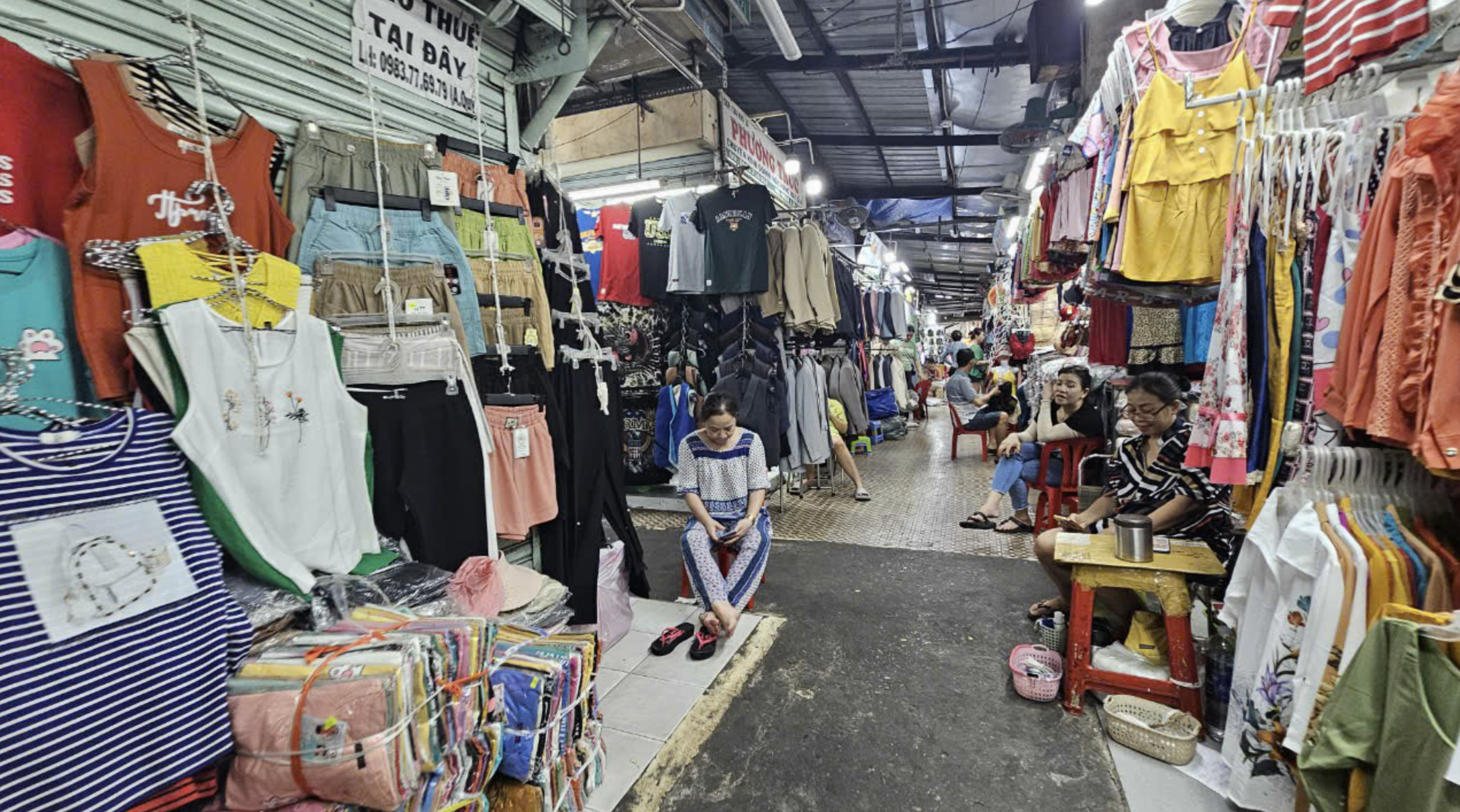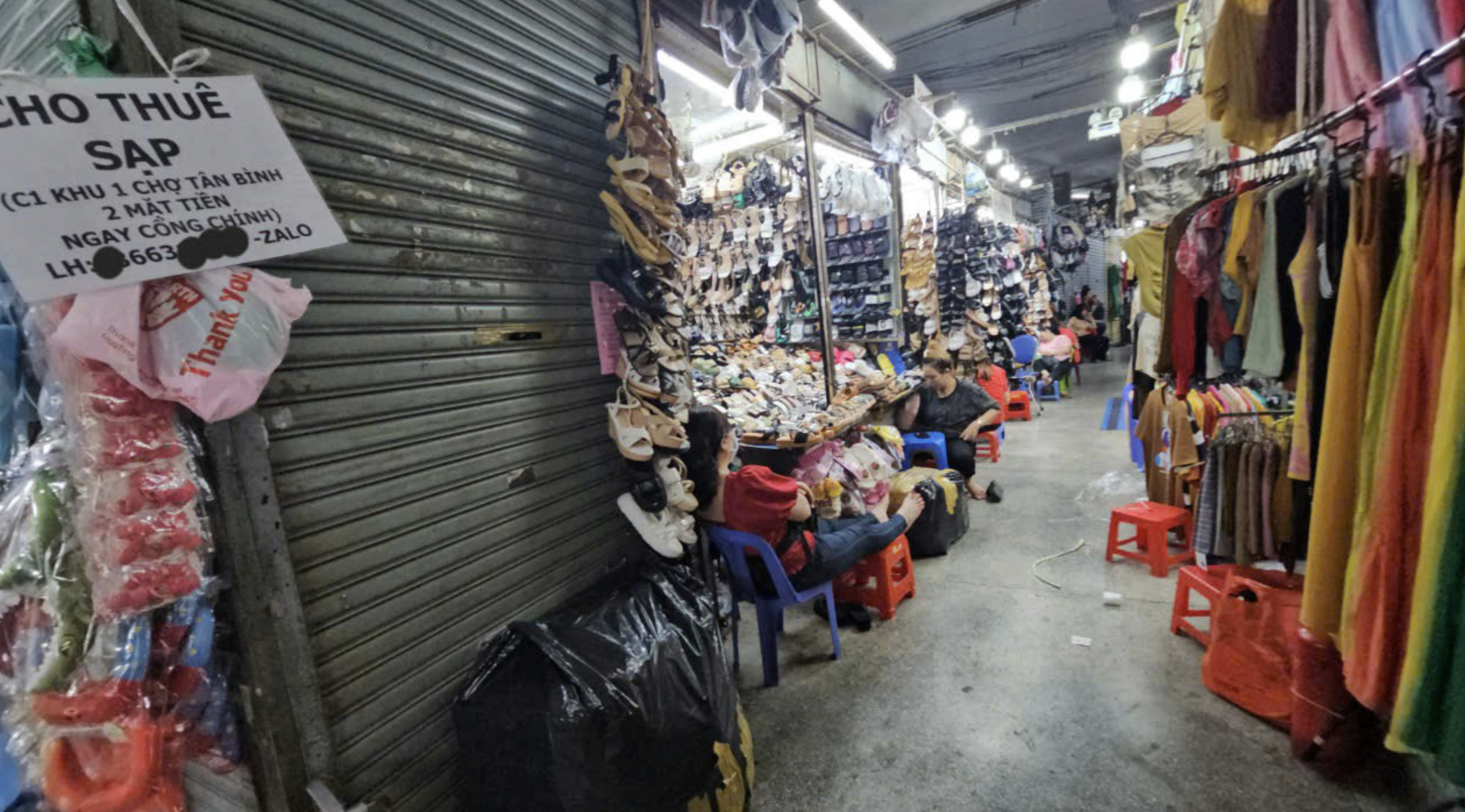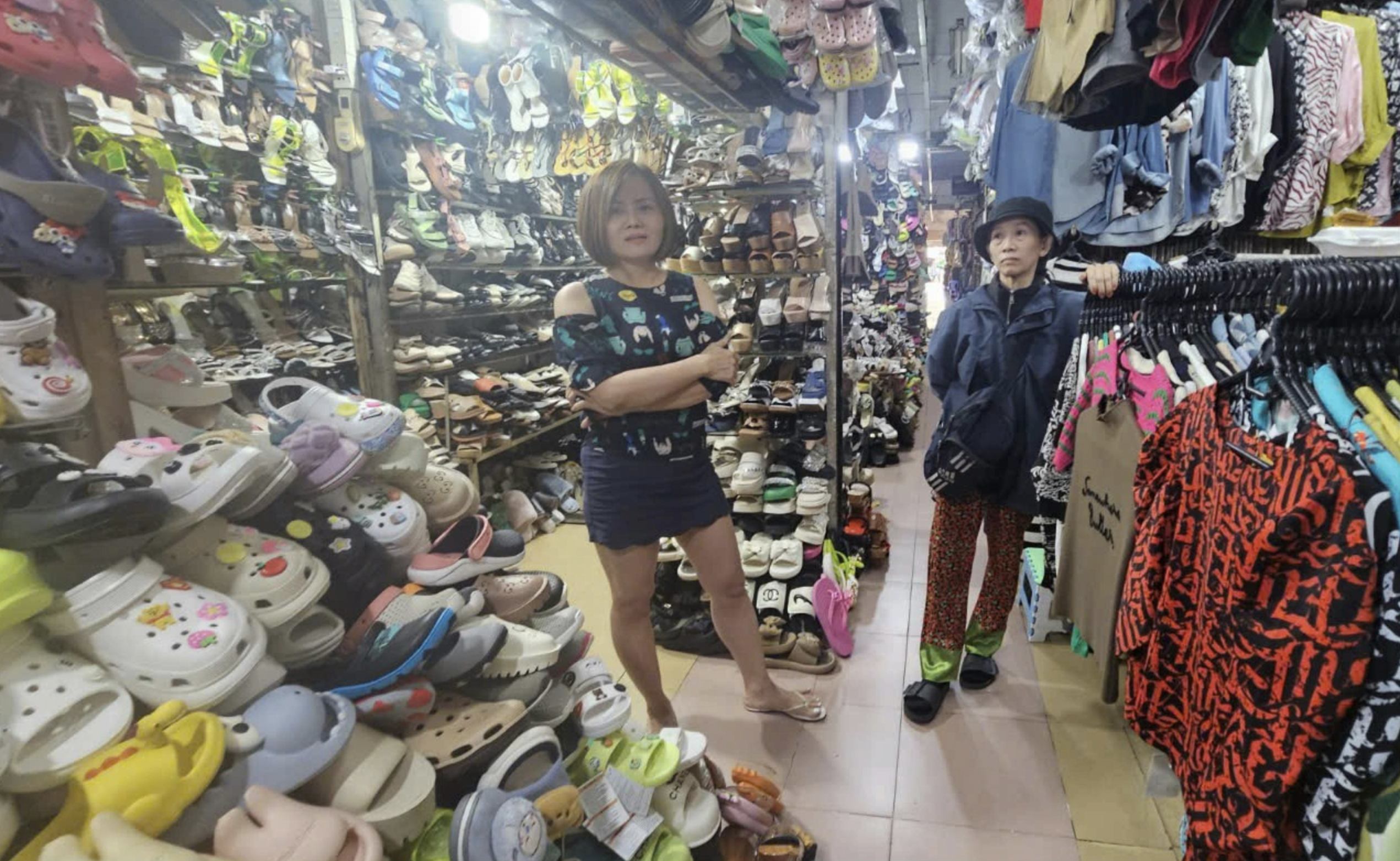Many merchants at traditional markets in Ho Chi Minh City are in hot water, with several forced to shut down their stands due to the growing influx of imported goods, particularly Chinese clothing sold through online platforms and live streams.
Vendors at these markets have expressed frustration, saying they have reduced prices or even taken losses to boost sales, but still struggle to compete with the online sellers of imported items.
Ho Bich Nguyet, a clothing store owner at Thu Duc Market in Thu Duc City, said that she purchases shirts wholesale at VND170,000 ($6.8) each and retails them for VND200,000 ($8).
Despite the narrow profit margin, she finds it challenging to keep up with the competition.
However, the same shirts are being sold online for just VND150,000 ($6) each.
“Clothes are sold online at prices so low that it’s plunging us into trouble. We simply can’t compete,” Nguyet lamented.
“I don’t know where they source their products or what the quality is like, but their prices are unbelievably low.”
According to Nguyet, many online platforms put on sale flip-flops at just VND10,000 ($0.4) per pair, while the lowest price of a pair at the market does not hit that level.
Having run a fashion shop at An Dong Market in District 5 for dozens of years, Vu Thi Ngoc Phuong said that traditional and wholesale markets have never faced any difficulty as they are now.
Many markets have witnessed clothes sales plunge by up to 80 percent compared to the pre-COVID-19 period.
Besides, many merchants said that the number of their wholesale buyers has tumbled significantly over the past few months.
Nguyen Dao Ngoc Nhien, a seller of clothes at Tan Binh Market in Tan Binh District, said that a sharp drop in wholesale buyers had plunged many fashion stores at the market into distress.
She attributed the plunge to online shopping.
“Even farmers and the elderly now know how to order items online, with products delivered quickly to their homes at prices lower than those at the marketplace, which is why customers are disappearing from traditional markets,” said Nhien.
The surge in e-commerce platforms, particularly the rise of TikTok, combined with the easier importation of goods from China, has contributed to the steep decline in business at traditional markets.
|
|
| Many merchants at An Dong and Tan Binh Markets in Ho Chi Minh City have closed their fashion shops or put them up for lease due to a sharp decline in buyers. Photo: Nguyen Tri / Tuoi Tre |
Traditional markets see decline in stalls
Doan Thi Thu Ha, a representative of the Thu Duc Market management board, told Tuoi Tre (Youth) newspaper that prolonged sluggish sales have led to the closure of numerous stands at the market.
Originally designed to accommodate 936 stands, only 572 stalls remain operational.
Of the 130 stands designated for fashion and cosmetics, just 22 are still open.
“Since 2020, a wave of closures, particularly among fashion stalls, has swept through the market, with many merchants unable to pay fees and taxes,” Ha said.
Ha added that while authorities have called for increased rent on the remaining stands, the situation at traditional markets continues to deteriorate.
"If no measures are taken to address this issue, more merchants will leave," she warned.
|
|
| A merchant at Thu Duc Market in Ho Chi Minh City reported that despite significantly lowering prices on some items to attract customers, the number of buyers has not increased as expected. Photo: Nguyen Tri / Tuoi Tre |
Facing similar challenges, the iconic Ben Thanh Market in District 1 has seen a significant drop in footfall compared to pre-COVID-19 levels.
Traditional markets are struggling, particularly in the fashion sector, as competition from e-commerce platforms and low-cost Chinese products intensifies, according to representatives from several market management boards in the southern metropolis.
Tran Van Dao, owner of a clothing import firm in Ho Chi Minh City, reported a decline in sales as Chinese enterprises increasingly use live streams to sell directly to Vietnamese consumers, bypassing local importers and distributors.
While live streams offer Vietnamese customers low prices, Dao noted that these online sales complicate efforts to verify product quality and monitor business practices.
He questioned whether Vietnamese authorities are imposing duties on these imports and advocated for appropriate taxes to ensure a fair business environment for local merchants.
Like us on Facebook or follow us on Twitter to get the latest news about Vietnam!




















































